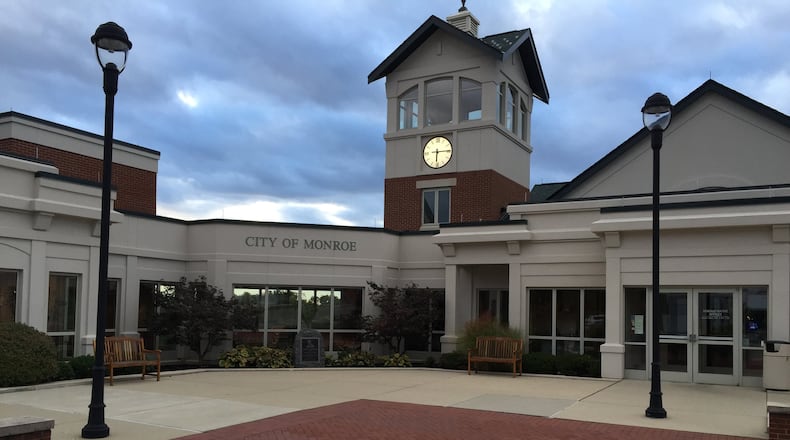Before rejecting the wording addition, council discussed at length whether grass clippings left in the roadway by residents or lawn-mowing companies should be considered a potential hazard, especially to those riding motorcycles or bikes.
The issue seemed to be over until a Monroe resident, an avid motorcyclist, brought her concerns to council Tuesday night and members — after much discussion, sometimes heated — voted to reconsider the ordinance at their next meeting.
Mayor Jason Frentzel, Christina McElfresh and Anna Hale voted “yes” and council members Tom Callahan and Robert Routson voted “no.” Vice Mayor Keith Funk was absent.
Jennifer Rogers, who said she has lived in Monroe for eight years and often rides her motorcycle in the city, wants council to add “grass clippings” to the ordinance because it’s “something that is easy and a no-brainer.”
She wants council to “set an example” and “protect lives” by adding the words to the ordinance, she told the members.
There are no laws in Ohio to keep people from leaving grass clippings in the road. After the meeting, Rogers said the main reason clippings are dangerous is they can reduce the traction bike tires have on the roadway.
Rogers brought up the vinyl siding issues discussed at the last council meeting and said glass blown in the road “certainly gives vibes of an unkept city as well.”
Then she added: “I feel that addressing the grass clippings in the roadway should be an easy fix to add a few words to the ordinance in question and be done with it.”
Rogers read her letter off her computer during the mostly virtual meeting, but due to microphone issues, council members said they couldn’t hear her. McElfresh asked clerk of council Angela Wasson to read the letter.
“I don’t want her words to go without being heard,” McElfresh said.
Callahan said he was against the ordinance and residents should do a better job of policing their neighborhoods.
“It’s time to move forward,” he said.
About the Author

